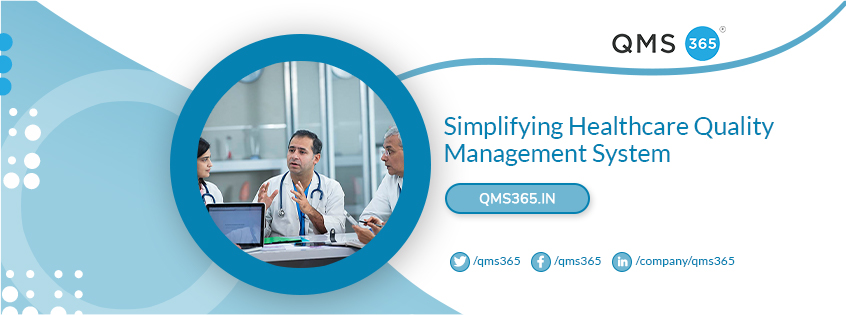
QMS365 (Quality Management System 365) is a software platform that helps Healthcare organizations manage and maintain their quality management system (QMS) in compliance with various national standards such as NABH (National Accreditation Board for Hospitals & Healthcare Providers) is a national accreditation program in India for hospitals and healthcare facilities. It is an initiative of the Quality Council of India (QCI) and is recognized by the Indian government. Hospitals that are accredited by NABH are considered to have met certain standards of quality and patient safety.
Some benefits of using QMS365 include:
- Streamlined processes: QMS365 automates many of the manual processes involved in maintaining a QMS, such as document management and non-conformance tracking. This can help to save time and reduce errors.
- Improved compliance: With QMS365, organizations can ensure that they are in compliance with the relevant standards, and can easily demonstrate this to external auditors.
- Better collaboration: QMS365 allows multiple stakeholders to access and contribute to the QMS in real-time, improving communication and collaboration within the organization.
- Increased visibility: With QMS365, management and employees have real-time visibility into the status of the QMS, and can easily identify areas for improvement
- Greater efficiency: QMS365 allows for more efficient management of quality-related activities such as document control, corrective and preventive actions, internal audits and management review, it also allows for easy tracking of the performance of the QMS over time.
- Cost savings: The automation and efficiency provided by QMS365 can help organizations save money in the long term by reducing the costs associated with manual processes and non-compliance.
- Customization: QMS365 allows you to adjust the system to the specific needs of your organization, making it more specific and efficient.
In summary, the use of QMS365 can help organizations to improve their compliance, streamline processes, and increase efficiency while reducing the costs associated with maintaining a QMS
